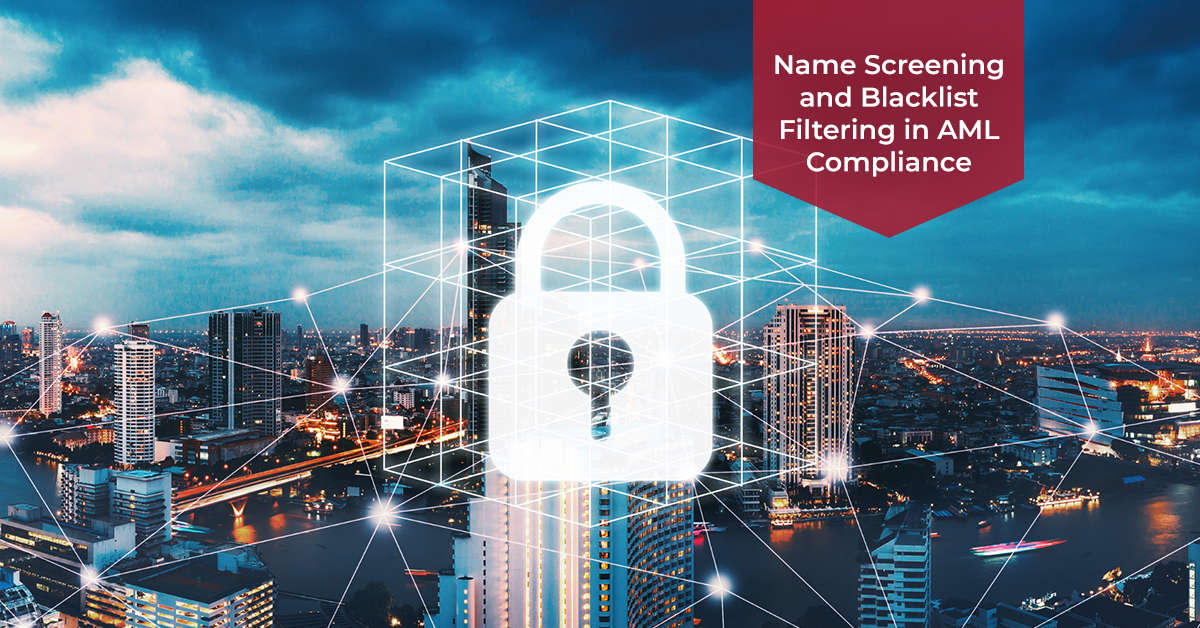
Name Screening and Blacklist Filtering in AML Compliance
What is Name Screening in banking?
Name screening in the banking industry refers to a risk assessment method used for checking if the potential or existing customers have any relation to risky financial activities or are listed in the sanction and blacklists. Name screening is an important step in an effective customer due diligence (CDD) process, therefore equally crucial to anti-money laundering (AML) compliance.
Why is name screening is important?
The purpose of the name screening is to operate an effective risk assessment and to help institutions and businesses refrain from violating sanctions. Name screening enables banks and other financial institutions to investigate and analyze the names of the customers and detect the ones who are included in the blacklists, PEP (Politically Exposed Person) lists or sanction lists. These sanctions and blacklists are issued by the governments and financial authorities so that the individuals or organizations that might be related to illegal financial activities can be screened and the necessary preventions can be applied against financial crimes such as money laundering and terrorist financing.
What is blacklist filtering?
The Financial Action Task Force (FATF) has more than 200 member countries that are devoted to implement the FATF Standards to prevent the illegal financial crimes such as money laundering and terrorist financing and to achieve a unified, global force to fight against organized financial crimes. The duty of FATF is to watch over those countries and make sure that they are implementing the FATF Recommendations correctly. FATF also detects the countries that do not comply with the standards and blacklists them. The FATF’s list of Non-Cooperative Countries or Territories (NCCTs) is basically the blacklist of FATF which has been issued since 2000 and includes the countries that act non-cooperatively in the global combat against financial crimes.
Blacklist filtering is basically checking the countries in the blacklist of the Financial Action Task Force (FATF) and combating illegal financial activities to support anti-money laundering (AML) and counter-terrorism financing (CTF).
How banks perform name screening and blacklist filtering?
The financial institutions are responsible for applying successful name screening and blacklist filtering in order to achieve an effective risk management system. It is essential to perform name screening and blacklist filtering in the account opening process of the new customers, in regular intervals for the existing customers, in the employment processes and in their collaborations with other institutions.
Banks benefit from the technological developments FinTechs and RegTechs offer for the effective name screening and blacklist filtering. With the help of the enhanced software, banks and other financial institutions are able to perform the necessary checks for their customers in seconds. These filtering and screening applications increase the detection rates with technologies such as intelligent detection prioritization and false-positive reduction. They also ensure compliance with AML regulations as they are capable of filtering data within official and private databases.
